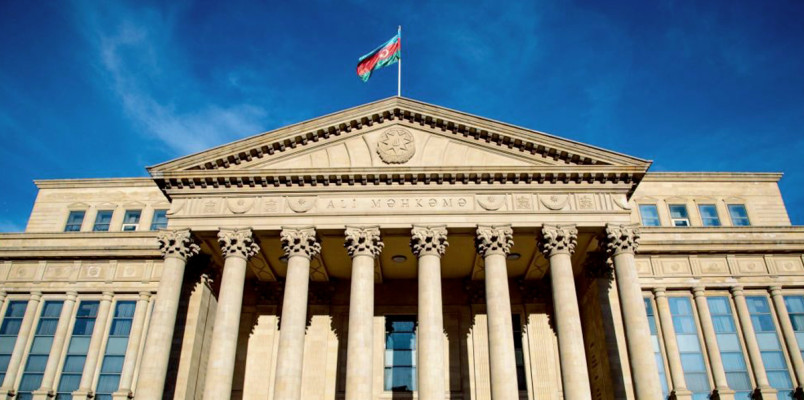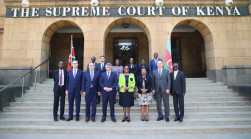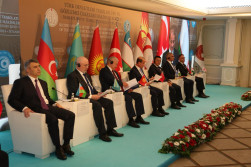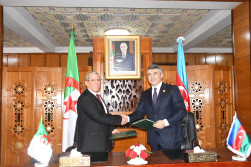Speech by Ramiz Rzayev, President of the Supreme Court of the Republic of Azerbaijan at the conference on “Implementation of the European Convention of Human Rights in Azerbaijan: Legal aspects and challenges”
05.06.2023, 14:18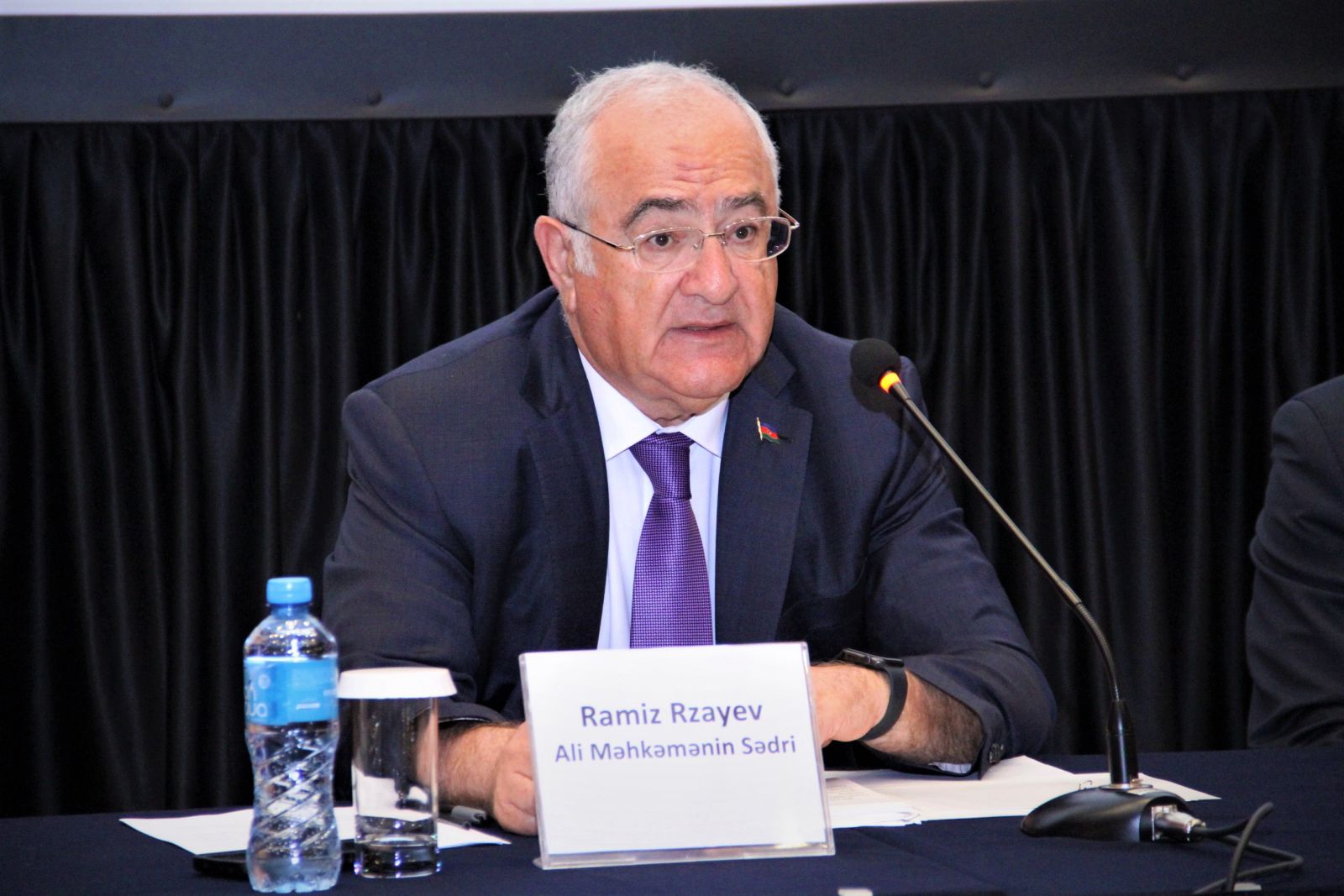
Speech by Ramiz Rzayev, President of the Supreme Court of the Republic of Azerbaijan at the conference on
“Implementation of the European Convention of Human Rights in Azerbaijan: Legal aspects and challenges”
Park Inn Hotel, Baku,
16 June 2022
Dear participants of the conference, Ladies and Gentlemen!
I would like to thank the Baku office of the Council of Europe, especially the head of the office, Mr. Zoltan Hernyes, for organizing the conference. The conference is dedicated to a very interesting topic - the application of the European Convention on Human Rights in the Republic of Azerbaijan.
I would like to note that after gaining its independence, Azerbaijan has chosen the path of development of building a democratic, legal and secular state. For this reason, the protection of human rights and freedoms has always been one of the main goals of Azerbaijan.
Adopted under the leadership of the Great Leader Heydar Aliyev in 1995, the Constitution of the Republic of Azerbaijan recognizes human rights and freedoms as universal high values, declaring their protection as the highest goal of the state, and the observance and protection of human rights and freedoms as the duty of the legislature, the executive and the judiciary. The Constitution also reflects the application of human and civil rights and freedoms in accordance with international treaties to which the Republic of Azerbaijan is a party.
It is recognized that the courts of the Republic of Azerbaijan act as the primary guarantor for ensuring human and civil rights and freedoms. For this reason, the fairness and efficiency of the judiciary is considered as criteria for assessing the democracy and protection of human rights and freedoms in society and the country. A strong and independent judiciary is essential to ensuring those values.
During the years of independence, our country has regularly carried out reforms in the field of justice, both in terms of legislation and administration, and these reforms continue successfully today.
Accession of the Republic of Azerbaijan to international organizations of universal and regional character and accession to numerous international agreements is one of the priority issues in the national policy. The relations of the Republic of Azerbaijan with the Council of Europe and its bodies are of special importance in the national policy pursued in this direction.
The Republic of Azerbaijan cooperates with the Council of Europe in many areas, including the judiciary. Azerbaijan has taken successive steps to modernize the country's legal framework within the framework of membership in the Council of Europe. Since the accession of the Republic of Azerbaijan to the European Convention for the Protection of Human Rights and Fundamental Freedoms in 2001, our country has begun an active process to develop a new approach to the Convention and European Court judgments, which in turn, has had a positive impact not only on the judiciary, but also on the development of legislation as a whole, which is gradually and consistently approaching the standards of the Council of Europe.
The impact of the Convention and the judgments of the European Court on the legal culture in the country is undeniable. Basic concepts such as the rule of law, legality, reasonableness, proportionality of punishment and procedural rights have already found a worthy place in the judicial practice.
This progressive trend and direction have not been overlooked by the Supreme Court of the Republic of Azerbaijan, which is closely involved in the legal reforms implemented in the country.
The Republic of Azerbaijan, as a party to and ratifying the “Convention for the Protection of Human Rights and Fundamental Freedoms”, has recognized the binding jurisdiction of the European Court of Human Rights on the application and interpretation of the Convention and its Additional Protocols. This means that in our country the case law of the European Court of Human Rights is accepted as an integral part of the Convention and further guides the administration of justice.
The protection of human rights and freedoms is under constant focus of President Ilham Aliyev. The Decree of the President of the Republic of Azerbaijan on measures to modernize the judicial system of 19 January 2006 recommended that the Supreme Court of the Republic of Azerbaijan and other higher courts organize a study of the case law of the European Court of Human Rights, as well as consider it in judicial practice. The Decree of the President of the Republic of Azerbaijan “On Approval of the National Action Plan for the Protection of Human Rights in the Republic of Azerbaijan” of 28 December 2006 also recommended the Constitutional Court and the Supreme Court of the Republic of Azerbaijan to ensure the application of international human rights instruments.
Decision of the Plenum of the Supreme Court of 30 March 2006 “On the application of the provisions of the “European Convention for the Protection of Human Rights and Fundamental Freedoms” and the precedents of the European Court of Human Rights in the administration of justice” states that the Courts dealing with violations of human and civil rights and freedoms should be guided not only by national law, but also by the provisions of the Convention, drawing on the experience of the European Court of Human Rights.
At the same time, our country places great significance on cooperation with the member states of the Council of Europe in the field of justice. In this regard, I would like to highlight the activities of the Supreme Court of the Republic of Azerbaijan as a member of the European Court of Human Rights' Superior Courts Network (SCN). Through this network, an information exchange platform has been established among the courts appointed by the member states of the “European Convention for the Protection of Human Rights and Fundamental Freedoms”, which has begun to ensure the correct and uniform application of the provisions of the European Convention and the precedents of the European Court of Human Rights.
Thus, as noted by the President of the European Court of Human Rights, Robert Spano, this platform exchanges knowledge of the case law of the European Court of Human Rights and creates a community of European human rights judges, with each of them acting as a Strasbourg judge at the domestic level in the face of disputes over the rights of the Convention.
This is indeed a reflection of the principle of "subsidiarity" provided for in Protocol No. 15 to the Convention to which our country is a party.
It is no secret that subsidiarity is not possible without strong, independent and impartial local courts operating within a national system governed by the rule of law. As we know, the member states of the Council of Europe are primarily responsible for the effective implementation of international human rights instruments to which they have voluntarily joined.
Although Protocol No. 15 entered into force in 2021, the Republic of Azerbaijan ratified this Protocol in 2014. In this regard, it should be noted that the Supreme Court recognizes its role in ensuring the protection of human rights and freedoms as the last resort of national remedies before citizens' complaints to the European Court, and recognizes its role in ensuring the protection of liberties and builds its work taking into account that the primary responsibility for the interpretation, application and implementation of the Convention rests with the national authorities.
The Supreme Court seeks to implement this practice by respecting the principles of the doctrine of subsidiarity and the margin of appreciation of States, which are at the heart of Protocol No. 15 and the Convention. The Supreme Court not only develops national law and the practice of applying this law from the point of view of the evolution of the Convention by the European Court, but also seeks to set an example for courts where the provisions of the European Convention are directly applied.
As you know, the national legislation demands the Supreme Court of the Republic of Azerbaijan to review the decisions of national courts after the European Court delivers a judgment in relation to the country. In order to accompany the consideration of a given judgment by an analysis of the country’s legislation and its application practices, and avoid repeated mistakes of the courts, we try to take a creative approach towards the judgment of the European Court and study them with particular attention. In this regard, the Supreme Court regularly examines the case-law of the European Court, translates judgments, discusses them in seminars, and ensures that the topics discussed are accessible to lower courts.
One of the indicators of the commitment of the Republic of Azerbaijan to the Convention system is the signing of Protocol No. 16 to the Convention for the Protection of Human Rights and Fundamental Freedoms in 2021. This Protocol, which is important for the establishment of a dialogue between judges, allows the courts of member states to consult the European Court of Human Rights on the interpretation and application of the Convention on Human Rights. Many states have expressed considerable hesitancy about the merits of opening to the possibility of advisory opinions. However, Azerbaijan has joined the Protocol with no such hesitation. We hope that the opportunity to receive advice arising from this Protocol will contribute additionally to the protection of human rights in our country.
In general, it should be noted that over the past twenty years, the European Court of Human Rights has issued more than 240 judgments in relation to Azerbaijan, which found violations of the provisions of the European Convention. This is not a significant number in relation to the population of our country. Of course, it is desirable to have as few judgments as possible against the country, and we continue to work to improve the functioning of the national courts to achieve this.
Azerbaijan has always respected the judgments of the European Court and takes all the necessary measures towards implementing them. In this context, it should be noted that taking into account the case law of the European Court of Human Rights, dozens of new laws have been adopted and changes have been made to existing legislation. These include acts to ensure both substantive and procedural rights. The Supreme Court of the Republic of Azerbaijan also contributes to this process.
At the same time, the case law of the European Court has affected the activities of the courts of our country. Grievances of citizens to the Supreme Court indicate positive changes in society's attitude to the judiciary.
Once again, I express my deep gratitude to all the participants of the conference, as well as to all members of the organizing committee.
Thank you for your attention!
Göstərilən platformalarda paylaş:


